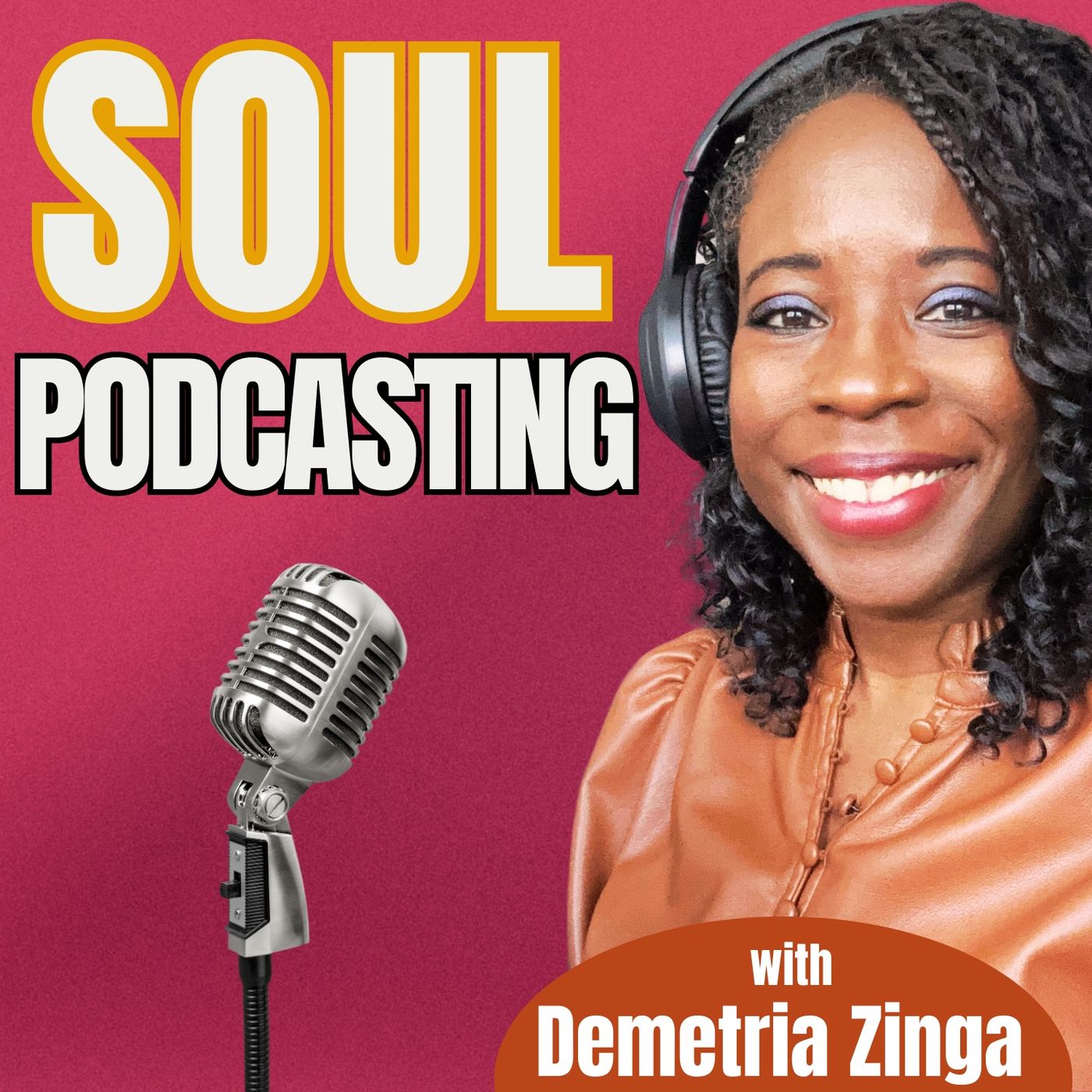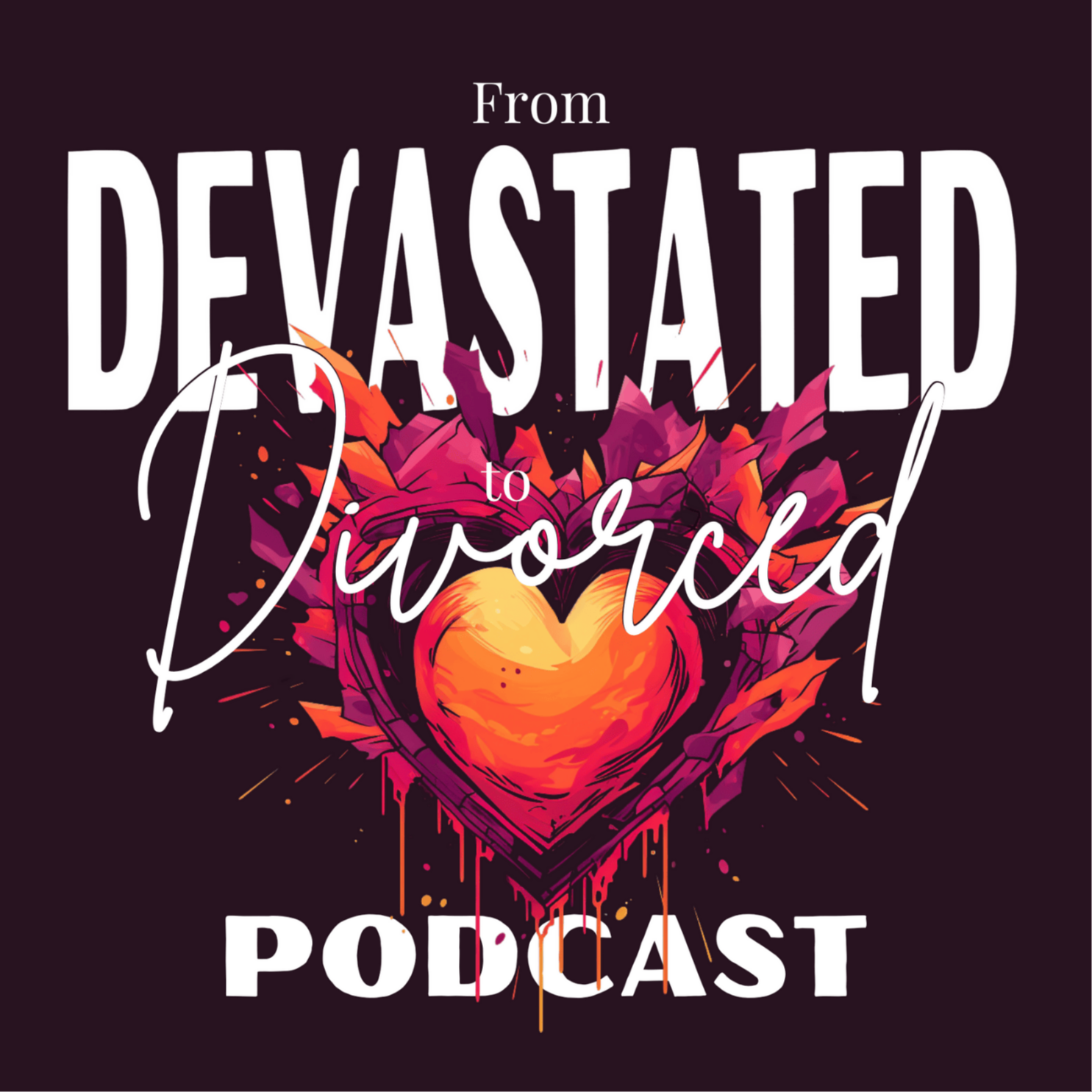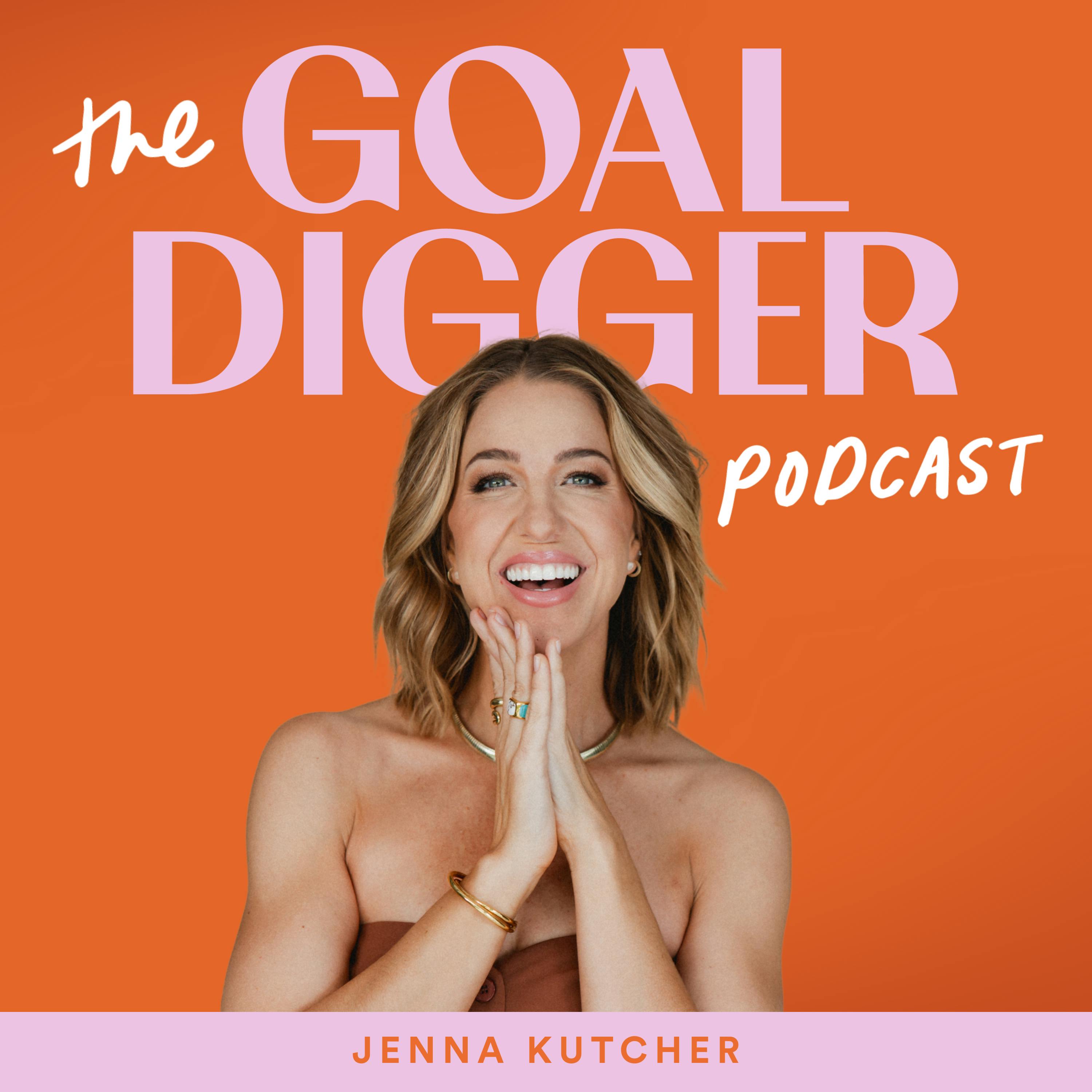
Podcast Your Story: Amplifying Women's Voices in Podcasting
Podcast Your Story is all about helping purpose-driven women own their voice and share their stories as powerful podcast guests and hosts. Whether you’re dreaming of becoming a sought-after podcast guest, ready to launch your own show, or grow an existing podcast, Podcast Your Story is here to guide and support you every step of the way. Listen to inspiring stories from women who are using podcasting to amplify their voices, share their stories, and grow their visibility.
Host Dr. Julie Marty-Pearson, Podcaster, Speaker, Visibility Coach & Podcasting Mentor, brings you practical strategies, honest conversations, and inspiring stories from women who are using podcasting to share their stories and grow their businesses.
Each episode focuses on a powerful theme— from how to become a confident and memorable podcast guest, to how to launch your show without the overwhelm, or how to craft your message for maximum impact. You'll hear a mix of solo episodes, expert interviews, and behind-the-scenes insights designed to help you show up, speak up, and shine.
Because YOUR STORY MATTERS. And your voice is meant to be heard.
Thank you for listening to Podcast Your Story. If you enjoy the show, I’d be so grateful if you’d subscribe, leave a rating or review, and share it with another woman who’s ready to use her voice to transform her life and inspire the world.
About Your Host:
Dr. Julie Marty-Pearson is a Visibility Coach, Podcasting Mentor, and Community Builder for purpose-driven women who are ready to own their voice and share their story. She coaches people to grow their visibility and confidence through podcast hosting, guesting, and speaking.
Julie hosts two podcasts:
🩷 Podcast Your Story, which focuses on amplifying women's voices and practical tips to grow their business through podcasting.
🩷 The Story of My Pet, a Top 5% podcast, sharing inspiring tales of pets focused on advocating and educating for animals rescue, fostering, and adoption.
Julie also created and hosts two communities:
🩷 Women's Podcaster Party Networking Community, for podcasters, guests, and speakers to connect and collaborate. Come check out our Monthly Networking Events.
🩷 Podcast Your Story Community which supports women and non-binary people to become and grow as Podcasters, Guests, Speakers, and Storytellers. To learn more and join, visit Podcast Your Story Community Membership.
Connect with your host–
Website - YouTube - Instagram - Facebook - LinkedIn - Pinterest
Contact your host: julie@podcastyourstorynow.com
Podcast Your Story: Amplifying Women's Voices in Podcasting
Harnessing the Power of Community and Female Bonds in Podcasting
Everyone has a story and every story deserves to be told, heard, and honored. Your host, Julie Marty-Pearson, interviews her friend and fellow podcaster, Rebecca Johnson, about her journey in podcasting.
When Rebecca and I first crossed paths in person at PodFest earlier this year, it wasn't just a meeting of minds—it was a heart-felt connection, bound by the shared passion of podcasting. This conversation is a testament to that very bond. We discuss how community and networking are the lifeblood of any podcaster's journey. With stories of widowhood and the healing power of humor, we talk about the intimate paths of personal transformation and the strength that comes from a collective voice in podcasting. Our conversation moves through the complexities of beginning a podcast, the therapeutic embrace of sharing our stories, and the joy of witnessing our podcasts evolve alongside us. It's a story of starting simple yet dreaming big, a balance every podcaster strives for. Rebecca brings her unique insights into podcasting for women, underscoring the importance of authentic storytelling in a world that too often muffles female voices.
During our chat, I also share how Rebecca's podcast recently impacted me deeply and gave me the push to tell my story, part of which is told in the previous episode of this podcast. Just as we discuss from our own experiences in podcasting and how your story is just waiting to be amplified by the podcasting community. Are you ready to Podcast Your Story Now?
Guest, Rebecca Johnson is the vibrant voice behind 'Love is Not Dead, Just My Husband,' a podcast crafted to uplift and empower widows on their unique paths of healing and rediscovery. As a widow herself, Rebecca has faced some of life's toughest challenges with unwavering resilience, including overcoming multiple losses and living with an incurable cancer. Through her podcast, Rebecca weaves personal triumphs with heartfelt stories, diving into the transformative journey of widowhood finding joy in life and loss. With her infectious 'Widow Your Way' attitude, she breaks down stereotypes and offers a welcoming space for widows to find comfort, strength, and inspiration.
Host, Julie Marty-Pearson, PsyD is a Podcaster and Coach for New & Aspiring Podcasters, who is passionate
Connect with your host, Dr. Julie Marty-Pearson –
Website - Instagram - Facebook - LinkedIn - Subscribe to my YouTube Channel
Contact your host via Email: julie@podcastyourstorynow.com
Are you a Podcast Host or Guest or want to become one? Join my new membership Podcast Your Story Community
Come network with other podcast hosts, guests, & speakers at the free monthly events in the Women's Podcaster Party Networking Community.
Shop our affiliate partner Nuvita CBD Use code Julie10 for 10% off!
Listen to The Story of My Pet Podcast- Website - Instagram - YouTube
Hello, my friend. Welcome to the Podcast. Your Story Now podcast. I am your host, julie Marty Pearson, podcaster and coach for new and aspiring podcasters. I am so excited to have you here to listen to this new episode. I hope this story inspires you and gets you motivated to podcast your story now. I'm so excited to have my friend and fellow podcaster here, rebecca Johnson. Rebecca, thank you so much for being on the podcast with me today. I'm so excited. So, rebecca and I know each other mostly virtually. We've been in a podcasting community for gosh several years now. We finally got to meet in person recently at PodFest, where it was just like an amazing community of female podcasters. We all know each other and we finally got to all meet in person. What was that like for you, rebecca?
Speaker 2:finally, got to all meet in person. What was that like for you, rebecca? Well, podfest. In general. I love PodFest because it's all about community people helping each other. Everyone there is so supportive Like. I've never been to a place where the community is just so encouraging and supportive. Everybody wants to help everyone with their podcast, it doesn't matter what it is. But one of the things that I really like most about PodFest is being able to meet in person with my podcast family and you're in that family and so we finally got to meet in person this year. That was so exciting.
Speaker 1:One of the things I'm talking about on this podcast trying to help other women get their podcasting journey started is talking about how important it is not to isolate yourself, because podcasting can be lonely and isolating. So for you, how important is that? Networking and community of other podcasters how important has that been to your journey, oh my gosh, I don't.
Speaker 2:Honestly, I don't think I could do it if it wasn't for my podcast community. There's still a few people that were in the cohort that I was in to launch my podcast that I do still communicate with, but since then I've made other podcasting friends Of course you but I couldn't do it without podcasting friends and I'm not. How do I say this? I don't want to say this the wrong way. I don't want anyone to take this the wrong way, but when you're picking your podcast friends, but when you're picking your podcast friends, you need to pick people that are going to be your podcasting friends. Like you have podcasting friends that you can just communicate with, like say, hey, how you doing, and you support each other online and things like that. But you need podcasting friends that are going to support you outside of that. You need podcasting friends that want to meet, that want to actually message with you.
Speaker 2:You want podcasting friends that you can help each other. Like I can ask you a question, like I can send you a message and I can ask you a question, and I don't feel like you're going to hide the information on how to do that, right? So if I'm stuck and I need help. I need to be able to go to someone and say how do you do this? And someone say this is how you do it. Or hey, would you like to do a Zoom and let me show you how to do it? Yes, I would absolutely love that. Those are the podcasting friends that you need. I mean, you do need to socialize with other podcasters, but you need a community. You need people that you can rely on and that will be there for you in that aspect. If not, it can be very lonely and you can get discouraged very quickly.
Speaker 1:Yes, I think that's so important because, look, podcasting is great and having courses and having programs that you purchase to learn parts of it is necessary. You and I have both done that. Some of them have been the same, Some of them have been different. We've been in a membership group before, but we're also in free groups together where people literally post I'm trying to do this, why isn't it working, or how did you do this, and people will respond there's no, oh well, if you pay me, I'll do a session for you. No, we're going to support each other. We're going to say I know how to do it. I'm going to show you.
Speaker 2:There's going to be something that I don't know and you'll help me when that happens. Exactly that's. Yeah, that is the community that you need, because I'm not going to lie I have reached out to someone for help and one for help and thought, oh, I can ask, and then I was hit with a this is my price for that, right Like oh, we must not be that close, my bad.
Speaker 1:And you learn who your people are and maybe who are just more business networking people. You need all of it, yes, but you really need that. Like you said, it's a true friendship community that support people who are willing to collaborate, just like we're doing right now. You're coming on my podcast. We're in groups where we do review swaps, we do episode swaps, whatever it is. We support each other and that is so vital, especially for women in podcasting.
Speaker 1:Yes, yes I have to say, going to podfest, it was my first in-person conference and I was still pretty shocked at how many men were there versus women. Like I think it's still a fairly male dominated medium, even though there's more and more women. That's one of the reasons I started this podcast is women need to tell their story through podcasting. So first, as a woman, why do you think it was important for you to tell your story and multiple stories at this point?
Speaker 2:obviously, well, I'll be honest with you Whenever I started my podcast, I wasn't necessarily thinking about being a woman, but it was all about being a widow. But I guess, technically, a widow is a woman, true, so, yeah, so, but gosh, what was the question?
Speaker 1:now, okay, so for everyone who's mean it's okay If I was a widow or a woman. I don't know, I guess our widowers, can they be. They're going to be male or no Widowers are men, widows are women.
Speaker 2:Oh, see I learned something.
Speaker 1:So we haven't. I introduced you as my friend and fellow podcaster, but I haven't said Rebecca has a podcast called Love is Not Dead Just my Husband. And Rebecca has a podcast called Love is Not Dead Just my Husband. I always get a good chuckle whenever I tell people about you and give that title, and what I think people can learn from that title is attention grabbing. Titles grab people's attention and they stop and they want to listen.
Speaker 2:So I love the title.
Speaker 1:Yes, so that is your podcast. Obviously, you started it to tell your story as a widow, that's where we were. There you go. So, not necessarily specifically as a woman, but as a widow. You wanted to reach other widows, meaning reach other women who had or were going through what you had been through. Yes, so in that capacity, why did you decide you wanted to tell that story? In that capacity, why did you decide you wanted to tell that story?
Speaker 2:Initially I wanted to find a community. I was looking for support with where I was at in my widow journey. So I wasn't quite there with a widow who just lost her husband and I wasn't quite there with a widow who's maybe remarried, had more children and well into their chapter two. But I was stuck on moving forward. I wanted to move forward and I was struggling with how to do that and I was looking for other widows who were in that same time period as me.
Speaker 1:That makes sense so.
Speaker 2:I wanted to share my story because that is where I was struggling. I was stuck, I was stuck in my grief and I was so comfortable with the pain, that's just. I wanted to leave that, and I was already on a journey in that direction and I just happened to get support and love and encouragement from a group of women that I had met on a women's wellness retreat in Mexico. These women changed my life and we became friends and then it just came about that I should do some public speaking to share my story, and I was really nervous about being in front of people and being on stage and one of the girls had the idea they're like you should do a podcast. You are hilarious, you should do a podcast. And I'm like I can hide behind a mic. I can hide behind a mic.
Speaker 1:I could do that, I can talk and I concur that you have the best humor in general but about your own experience that you catch people off guard. But it's such a great way to move through pain and grief and you just have such a positive, humorous perspective that I love that about you. Oh, thank you, but I think what you said is important. You realized you had a story to tell. You wanted to find other people that you knew would connect with where you were and you might be able to help each other. You wanted to maybe go into public speaking, but you weren't ready for that leap, so podcasting came as a good first step.
Speaker 2:Yes, it has been. It has been quite the experience and I do feel like it's preparing me for that next step. So it's been quite the year and it's it's been a journey.
Speaker 1:And I think that's important because I think so many people hear now video YouTube stuff. True, the true podcasts are still audio only Now. That doesn't mean you can't do other mediums, but a lot of us started because of the appeal of audio only right, like you said, behind the mic. Yes, it's also now. There's other parts to it, like social media and video and going live and all these things. So how did that initial step in podcasting pull you into the more uncomfortable stuff you weren't ready to do?
Speaker 2:I learned it because I had to. I mean, this part is the easy part, right, the fun part coming up with the ideas and what you want to share in recording it. That's the fun part. The hard stuff is the editing. The time it takes to edit the social media, coming up with what to put on social media, worried about what your Instagram looks like. Do I have a bio? Do I have a website? Do I need a website? What's an RSS feed?
Speaker 1:I still don't know, podcasting has its own language that you've got to learn. And there's, I still learn new stuff every day and I'm like, oh, that's how you do it, oh, that's cool.
Speaker 2:Yeah, and then you learn the social media and it's not just a post, and then it's a reel, and then it's a TikTok, and then it's a YouTube, and then it's now we got to do interviews, and now I got to learn how to do an interview, and now I need another platform and it's a constant learning experience. But through it all, I feel like I am more comfortable with sharing my story. Sharing my story, I've learned to be more consistent. I've learned a lot about accountability. Whenever you have listeners. I'm learning to how to speak better. Believe it or not, I still say a lot of ands and ums and likes because I mean, that's how we talk in general. Right, I mean we all don't sound like these professional little robots, but that was ultimately the goal is to get into public speaking and to be a public speaker.
Speaker 1:You do have to be a little professional, so I've been learning a little professionalism along the way too, but I think that's important, I think, because it's okay to start in the messy. That's what I did, like I didn't edit my first few episodes at all, I just decided to put it out there. Then you get a buddy going to respond to this or listen to it, and then from them I started editing more and doing the music and all the things. So you start where you are and you grow. That's the great thing about podcasting, like you said, it's you're constantly evolving and learning new things. But you also don't have to do it all right now. Right, you don't have to be on every social media platform.
Speaker 1:You don't have to do a newsletter and an email list and a blog. That's great if you can add it later. So where have you really learned that balance in terms of you can grow your podcast without having to do every single?
Speaker 2:thing, it's mindset, because in the beginning, like most people, I was really excited and I wanted to do everything. I wanted to do everything and I want to do all the things and I wanted to do them all at once.
Speaker 2:That was extremely overwhelming and I just had to decide. What's most important and for me, most important was the podcast itself, getting out the episodes and sharing. Then I took the next step, which was social media, and I wasn't good at it. I didn't really know what I was doing. I didn't really know what listeners wanted, so I was just putting anything out there, and I recommend just doing that, just putting anything out there because that's going to get you over your fear. I mean, it took me at least almost a year before I really learned anything about social media. And I took a class. Actually, it was a free class, it was a free challenge, it was the Sasa Challenge.
Speaker 1:Okay, ina Coveney, who is a colleague and coach to both of us, who is amazing. She does amazing masterclasses and challenges around building your visibility with social media, with a small audience.
Speaker 2:Yes, I did her free salsa challenge and I learned so much about Instagram and social media just doing that and really, truly, that's how I learned to do my Instagram and once I learned, it was easier. Now am I consistent at it and still that great at it? No, but I try and that's really it. Just try.
Speaker 1:Just try. I think that's so important because it can be overwhelming to think you have to post every day and something new and all these things. It's like you can post it. You can post it when it works for you, you can post it when it feels right and you can post something you posted a month ago again because who knows if somebody saw it a month ago. There's so many things that you have to get comfortable with that. I don't honestly know how the influencers keep up with the daily stories and the TikToks and all of that. It feels overwhelming to me. But I also think what you said was good to say is you just got to try it and see how it goes, because you're going to get a sense of what people respond to when you start posting.
Speaker 1:Yes, yes, so we've talked about why you started, why you did podcasting, but we haven't really actually talked much about your story specifically.
Speaker 2:Oh.
Speaker 1:So we can get into it a little bit. I know it's a long story. It's evolved since through the last five to six years for you. But I know when you started your podcast you were starting it, like you said, because you were looking for a community and you were podcasting your story at the time, which you said was in this in-between kind of limbo but in your grieving process. So how did you feel about starting there and where you've ended up with the podcast? Has that changed? What has that process been like for you?
Speaker 2:Yeah, so it's changed drastically. In 14 months I launched December 2022. I launched. Everything's changed since then. Halfway through the year, I rebranded because I learned a little bit more about branding. So I rebranded about halfway through the year. Then at the end of the year so just in November I found out my cancer had metastasized. So that has also had my podcast changed a little bit. So I've pivoted and that's something that new podcasters should also know that your podcast can change at any point. It doesn't have to remain the same. You can pivot as much as you want. You can pivot a little bit, you can pivot a lot. So now in my podcast I still talk about grief and loss, but actually I take that back. Well, I do talk about grief, but in the beginning my podcast was mostly about grief and loss and moving forward. Now my podcast is more about life and loss and moving forward.
Speaker 1:And I think that's such an important journey for listeners to hear, because I think myself even, and so many people are so afraid of change. You've got your podcast, you're doing your thing. I can't change it. I can't talk about something else, I can't do a different format, I can't change the name. Actually, you can. You can do whatever you want and you're a prime example of your life has shifted, so your podcast has shifted too.
Speaker 2:Yeah, and that's the thing. It's OK that it's going to shift, because you're always going to find your people. You're always going to find the, your listeners, your audience. I just like to say your people, because they're my people. You're always going to find your people, no matter what you're pivoting to, because you're probably pivoting in a different direction. That one you need to go. Change is also good, because I don't think we grow if we don't have change. There's so much you can learn from that. Your listeners can learn right along with you.
Speaker 1:Right. I think that's important because some listeners will get bored if you're talking about the same thing over and over again. Maybe they're not getting what they need anymore, and that's okay, but there's going to be other people, like you said, are going to find you. They're going to find you and, whatever it is you're saying or telling, they're going to come to you because of that, and you're a prime example of the people are going to find you because you had a pretty big milestone recently the end of 2023, you hit 10,000 downloads, if I remember.
Speaker 2:I did I hit 10,000 downloads, exactly one year and two days from the launch of my podcast.
Speaker 2:So, I was so excited about that and the downloads is not important, like that's not what we should focus on the downloads and I don't even know what it was, but it was around nine months. It was right around nine months Something changed in my listeners and that is when my numbers started to grow. That's when my downloads started to grow. For nine months I didn't have much. It was very slow growing for me and it was, I know, at least six months before I had my first widow listener reach out to me. I mean, I thought the only people that was listening to my podcast was my family and my friends and me.
Speaker 2:I was listening every week on every platform, just to get a download.
Speaker 1:So I've done the same thing.
Speaker 2:Look I don't care, I'm not even embarrassed, I'm not even embarrassed about that.
Speaker 1:I think we all do that, especially in the beginning. We're like download, yeah, and I think it's important what you said. Downloads aren't everything you hear about that. And, of course, it's important what you said Downloads aren't everything you hear about that. And, of course, the big ones that's what they promote, because downloads are where you get ads and all those things. But for us, indie podcasters, yes, it's important. We want to look at it. What episodes are big? What do people like? What don't they like? All of that.
Speaker 1:But I think what's important is you talked about social media. Wasn't your focus? You aren't on every platform, but your listeners still found your podcast. Yeah, absolutely. I think that's an important thing because we hear that so much. And, yes, it is important and it's great to be able to say my podcast did this, or I'm in the top 10 percent, or I'm in all those things, because it's great and people think, well, if people are listening, I should check it out too. So it is important. But you don't want to focus on that. I do it sometimes like stop looking at the numbers.
Speaker 2:Yeah, and what else, since we're talking about that and you mentioned the title of the podcast Love Is Not Dead, just my Husband. When I started the podcast, I got some pushback from the community about the title in SEO, which is search engine optimization. I still don't go by search SEO. It's not on my priority list, I do not prioritize SEO. My priority list, I do not prioritize SEO. And when I first started people were like, well, no one's going to find your podcast. When they search widow, it's not going to come up. When they search dead husband it might, but who is searching dead husband? So, but what? I did a little trick. So my podcast is Love Is Not Dead, just my Husband. But my tagline is Widow your Way.
Speaker 2:So what I did is on Buzzsprout for the title you include I put Widow your Way, then in my show notes I always include at the very bottom. I always say, and as always, widow your way. So at least because every platform search is different. Some people search just the title, some search from the show notes. So I just made sure widow was in the title and widow was in the show notes and anyone who's going to search widow, it's going to pop up. That's the extent of my SEO.
Speaker 1:Hey, it works, and I think one thing is go with what you want, what you're comfortable with. If that has meaning to you, it's going to come through to people. For one, and also I've seen more people doing that where they have their title and then they have like their tagline in the title when it's on platforms, and it does help because it gives you more words for it to be searched. So I think that's a powerful trick tool to do as well, because it allows you to have whatever name you want but still get that tagline. Taglines can be really important for podcasts.
Speaker 2:Yes, yes, that's what I did.
Speaker 1:Recently your episodes have been more have been talking a little bit about your life in terms of being now with stage four cancer, because your eye cancer has metastasized and I was recently listening to one of your episodes that really touched me in a way that you probably don't know. So I want to share that with you a little bit, because one of the reasons I want to start my second podcast Podcast your Story Now is because I have my own personal stories I've never really shared, because my first podcast is all about my pets, and so I was listening to one of your episodes and you talked about your initial eye cancer and how you ended up having to lose one of your eyes and you talked about that. There was grief in that loss that you had to grieve, the loss of losing a body part and what that meant in terms of your life and what you would look like. And it hit me because I've gone through not anything similar. I never had cancer or anything like that, but I've dealt with autoimmune disease issues since I was a kid and in my 20s I started having all these problems with my teeth. I have a disorder that causes severe dry mouth, so literally my teeth started breaking. It would just chip and break and all these things and there's a whole story I have gone into on the podcast, but ultimately I had to lose all my teeth. So what you see now are dentures. I haven't had my own teeth for Gosh 13, 14 years now and it was something that I was very insecure about.
Speaker 1:I didn't like to talk about it. When I had the surgery and did it all, very few people knew what was happening. Very few people knew after, and when people would tell other people and I found out about it, I would get upset Like this is my story. You're not allowed to tell other people and there was something about the way you talked about your loss with your cancer. That was like I realized I've been grieving something that I never really realized what I was going through and it just made me go oh my gosh, rebecca. You just made me feel seen and I just wanted to first thank you for putting it out there and be so brave to just openly talk about it so that you realize it does impact people, because it impacted me and you wouldn't have even known that if I hadn't told you.
Speaker 2:Oh Julie, that's, sweet.
Speaker 1:So I think that right there for me is the power of podcasting. You don't realize what people go through or have gone through or are going through, that you telling your story is going to make somebody else feel okay and feel like, oh, I'm not weird, I went through something and it's okay to have had a hard time with it.
Speaker 2:Yeah, and you know what else. I'm glad you shared that. Thank you so much because, as women shared that. Thank you so much because, as women, we can't help but to be a little self-conscious about our looks. And I was just on a LinkedIn Live the other night and showing up perspectives of cancer and we were talking about this and about how some diseases or illnesses are invisible. Yep, and people can't see that. And us, as women, we can't help but be concerned about our looks and I don't think it. I mean it just is we do. And I have lots of scars that I've had to get used to. I have to get used to a prosthetic eye. I got this long scar on my forehead from skin cancer. Now I have a port for my treatments that I just I really am struggling with physically Well, mentally and emotionally.
Speaker 1:Right Because of the physical, but the looks of it physically, emotionally, but the looks of it physically.
Speaker 2:You sharing that and you were listening to a widow podcast. You were listening to a widow podcast and you're not even a widow and you got something out of that and that is you're exactly right, one of the most powerful things about podcasting, because you can listen to a podcast and you don't know what you're going to get out of it. You don't know what you're going to get. You're not you're. You don't know what you're going to relate.
Speaker 2:I have people that message me all the time and say I am not a widow, but what you said resonates. And when you share your story, even though your podcast is going to be about sharing beautiful stories of women podcasters and starting their podcast, there's going to be stories that you're going to share that aren't even going to have anything to do with that and are going to touch people and inspire people. And they're going to think, oh my, with that, and are going to touch people and inspire people and they're going to think, oh my God, I can relate to that. Yes, she just shared that. She's so brave, she's so amazing, I can do that now. And then they're going to want to start a podcast. Or even if they don't start a podcast, it will give someone the courage to share their story, absolutely.
Speaker 1:I think that, especially as women, we were taught for so long to just keep it to yourself. You're not a problem, you don't complain, you just do it whatever it is. And even though social media is all about looks, you're not supposed to worry about that. You're just supposed to keep moving. But there's all these things as women we go through women trying to get pregnant and can't not be able to get pregnant, all the IVF, all the women's right issues For me being 46, I had a hysterectomy several years ago all the changes in my body from that Again, no one can see that I'm going through that and I know so many women go through it and don't talk about it and feel ashamed of the things that are changing.
Speaker 1:But, just like what you said, people who go through cancer and all these things that sometimes it's visible, like when women lose their hair or whatever it may be, but a lot of times it's not, and we're holding all of that in and we're carrying it around with us. But sometimes just saying it, telling your story, sharing your experience, not only helps others feel heard, but it releases it from you, from carrying it around and being worried about it.
Speaker 2:Yes, and you know what else. This just goes back to what we were initially talking about with having a podcast community. Yes, because it's I mean, it's already difficult for women out there in general and then in the world and women podcasters and someone who may podcast, like you said, it's very lonely, right? And I know a lot of people who podcast because they don't have any other outlet, they don't have any other friends, they don't have a good support system, right? So these airwaves, this microphone, is their way of expressing themselves.
Speaker 2:Absolutely way of expressing themselves, absolutely so, having a podcast community and podcast friends, but more importantly, I say my podcast family, because the community that I am in, the people that I've met, which include you, are like family at this point. We're not just friends, we are family. I mean, at minimum, cousins. So, but yeah, that's important too for women. So when you are feeling insecure about how you sound on the microphone, let's get together. Maybe it's the microphone, it's not you, and you're like well, I don't think I'm saying this in the right way, let's say it to us. Or if you're trying to do that first reel on social media and you're like how does this look? How does it come across? Show us, let us tell you, Let us help you. You're scared to show that picture. We were just talking about pictures and I was just saying, like, look at you selfies on Instagram.
Speaker 1:I need to step up my selfie game because I'm not showing my face and that's part of community too as we push each other along like, oh, she did it. Oh, look, how great that looks, I'm going to try that. Wait, how did you do it? Oh, I can do that now. That's part of it. We're not only helping, but we motivate each other. Just like I said with listening to your podcast, I've been thinking about telling this part of my story for a long time. I've seen things in some shows where people talk about something similar, but when I heard yours and I'm just like it was grief. It is grief sometimes still, that's powerful and, like you said, I was listening to a widow podcast. But really the underlying thing is grief, and we have grief in so many different ways. That's one way that you reach people, but having that community is what makes you feel solid enough to do it and keep doing it and keep moving forward when you have that reassurance and that support.
Speaker 2:Yeah, and here's the thing you can only get that type of reassurance from your podcast community, right? You can't get that from your friends and your family. My friends and family are very supportive, but, first of all, I know they all don't listen to my podcast, and that's okay. They all don't have to listen to the podcast. They better not tell me they're not listening to the podcast. But, deep down, you don't have to listen to my podcast, right. But when it comes to what podcasting entails and what you need to do to grow your podcast, you cannot get that from your friends and your family, because if they are not podcasters, they're not going to be able to relate. This is why having your podcast community is so important if you're going to start a podcast.
Speaker 1:Absolutely. And if you're listening to this and you're thinking about it, you thought about it you can reach out to either one of us and say I listened to you and I love what you said. I'm trying to start. Do you have any advice or suggestions? We're here, or like OK, you just said you did this. How did you do that? We are here to support you. That's what we do. We have a group of us that we've come from other groups and we're still. We're going to. We're going to continue meeting monthly to support each other and collaborate and just talk about podcasting or other things. But, oh gosh, that support is so important and I think we saw each other at PodFest it just amplified it.
Speaker 2:Yes, I mean. There is nothing like the energy that you get from another human being in your presence.
Speaker 1:I was nominated. Rebecca was nominated for several awards and it was really for independent women and non-binary podcasters. So what was it? It was a room full of mostly women and non-binary podcasters. There were a few men there supporting and just the energy in that room for every award and the nominations and who won. It was just electric. We were screaming and jumping up and we were all dressed up.
Speaker 1:It was such an amazing experience. I haven't had an experience like that, probably ever related to a professional aspect of my world. I definitely haven't. It was just, yeah, I think it was such a great way to kick it off because we all just were going off that energy. But also when you won, there was like this I think all of us who have known you, have been any part of your journey, felt like we won too. It was just so exciting. Didn't you pick up my phone?
Speaker 1:So I was sitting next to Rebecca and she had been recording everything and she was recording and it was hers. She was nominated for a People's Choice Award and she pushed hard and we all voted for her every day and so they announced it and she, like, jumped up with her phone and then she threw it down on the table to run up to receive the award. So I picked it up and then I recorded her whole accepting the award and everything. It was so funny she turned it into a reel. It was amazing. Oh, that was. It was so funny, she turned it into a reel it was amazing.
Speaker 2:Oh, that was yeah. Look, I was so surprised. I was like, please win, Please win. I've never won an award before in my life. I want to win and everybody was voting. But let me tell you, that took a lot of work. It took a lot of work to be consistent on social media and asking people to vote for you and it's. It was hard too, like I was embarrassed but I was excited at the same time, but I was also embarrassed to post it and get that attention and it was scary to ask people to vote for me and it was scary to ask people to vote for me, right?
Speaker 1:But I did it and it paid off, but it also helped you grow.
Speaker 2:in a way, it did it. It pushed my limits. It took me just being nominated, and asking people for votes took me out of my comfort zone, because that's not something that I would normally ask people to do.
Speaker 1:Right, and you know, the one thing that you wouldn't know, I didn't know until I was a podcaster is most podcast awards are you self-nominate. I mean, people can nominate you, but a lot of them you actually pay a fee and nominate yourself, like especially some of the really big ones. And so I know one. I wasn't nominated by someone else, but there was one I had nominated myself because I was told that's what you do. I'm like, well, that's so weird, but if that's what everybody does, then yeah, I want to be proud of what I've created and do it too. But I think for you it was that aspect of you pushed. You asked and people responded.
Speaker 2:Yes, yes, and then just the support was overwhelming. The support was overwhelming. And then that just goes to show who your listeners are. And then other people were sharing it and they're probably like what's this? Why am I going to vote for her? Well, let me listen to that podcast, right?
Speaker 1:Yeah, absolutely.
Speaker 2:There's a download.
Speaker 1:If you listen for four minutes counts, so just push play. You don't even have to pay attention. No, really, I know to listen, but you know everybody plays the game too well, I think what we have said through all of this is podcasting is such an incredible platform. It can be very healing, it can be motivating, it can do so much. But it's okay to be scared, it's okay to try things, it's okay to change, it's okay to do other things, because we're both examples of you. Do it, what works for you, what you like, what people respond to. It's all just a part of the process, but community is what's really most important.
Speaker 2:Yes, I agree, Start messy, but start, Do it how you want to do it. There are no podcasting police. No matter what they say or what you hear from anyone, there are no podcasting police. There is no one that's going to come up to you and say you did from anyone. There are no podcasting police. There is no one that's going to come up to you and say you did that wrong and give you a fine Nope. Yeah, I think everybody wants to know this is how you do it.
Speaker 1:This is how you don't do it. No, there are 10 different ways to do everything, and you pick what works for you, what feels right.
Speaker 2:Yes, I love that. And then the podcasters, like the big people, like Mel Robbins, kathy Heller, jenna Kutcher, all of them, they have an entire team, yeah, so it looks that great. And it sounds that great because they got the best of the best people doing it, but you know what you got. You got yourself and you are just as awesome, so remember that you can do exactly what they do.
Speaker 1:Thank you so much for listening to this episode. It means so much to me to have you here. Make sure you don't miss any new episodes of the podcast. Hit, subscribe wherever you are listening right now and new episodes will automatically pop up in your feed as they come out. If you enjoyed this episode, please share it with friends and family, and make sure to leave a rating and review wherever you are listening. That will help the podcast to grow. Come on over to Instagram at podcastyourstorynow to keep up with me and the podcast so that you can be ready to podcast your story now.
Podcasts we love
Check out these other fine podcasts recommended by us, not an algorithm.

Story of My Pet: Tales of Animal Rescue, Fostering & Adoption
Julie Marty-Pearson
The BOLD and Brilliant Podcast with Tracie Root
Tracie Root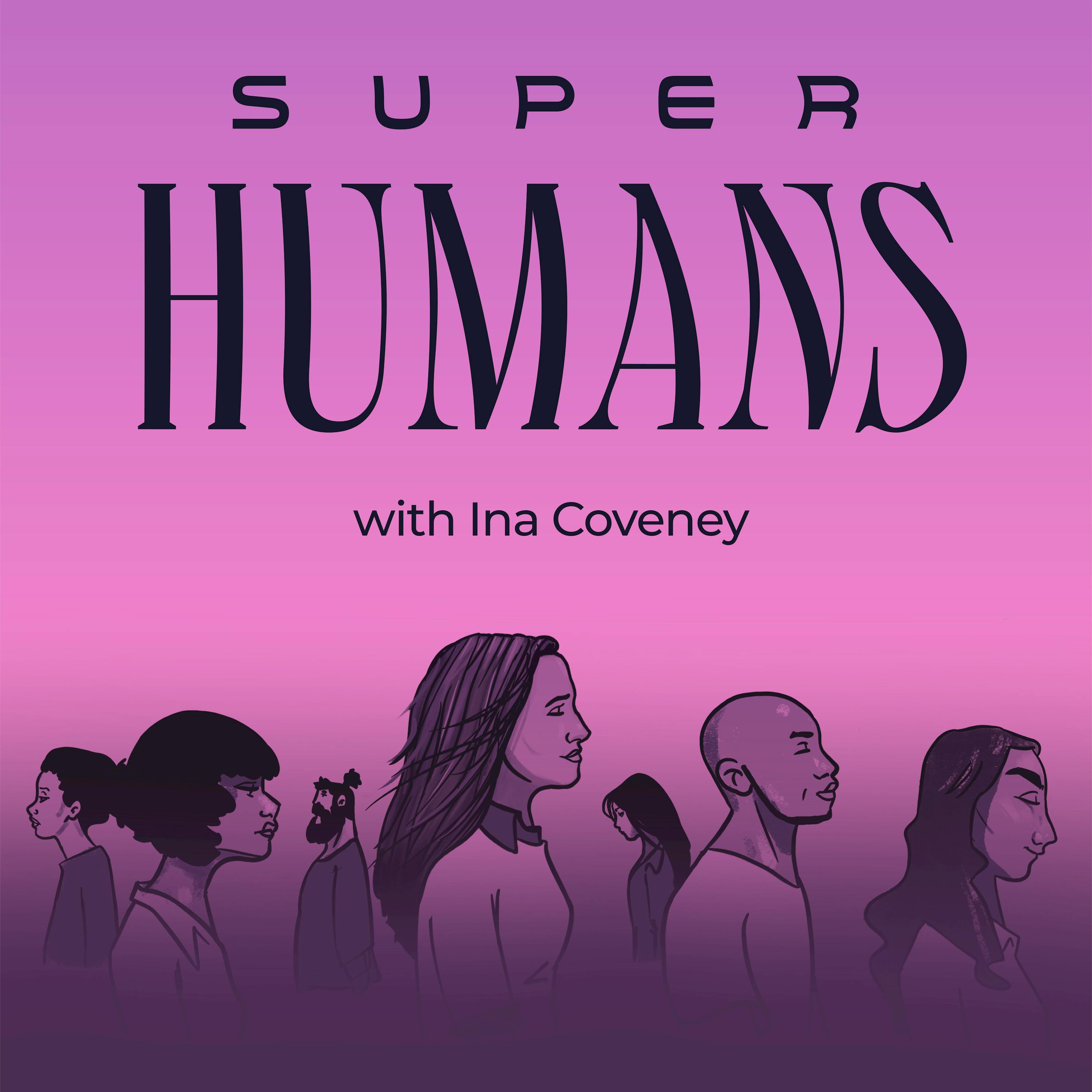
Super Humans with Ina Coveney
Ina Coveney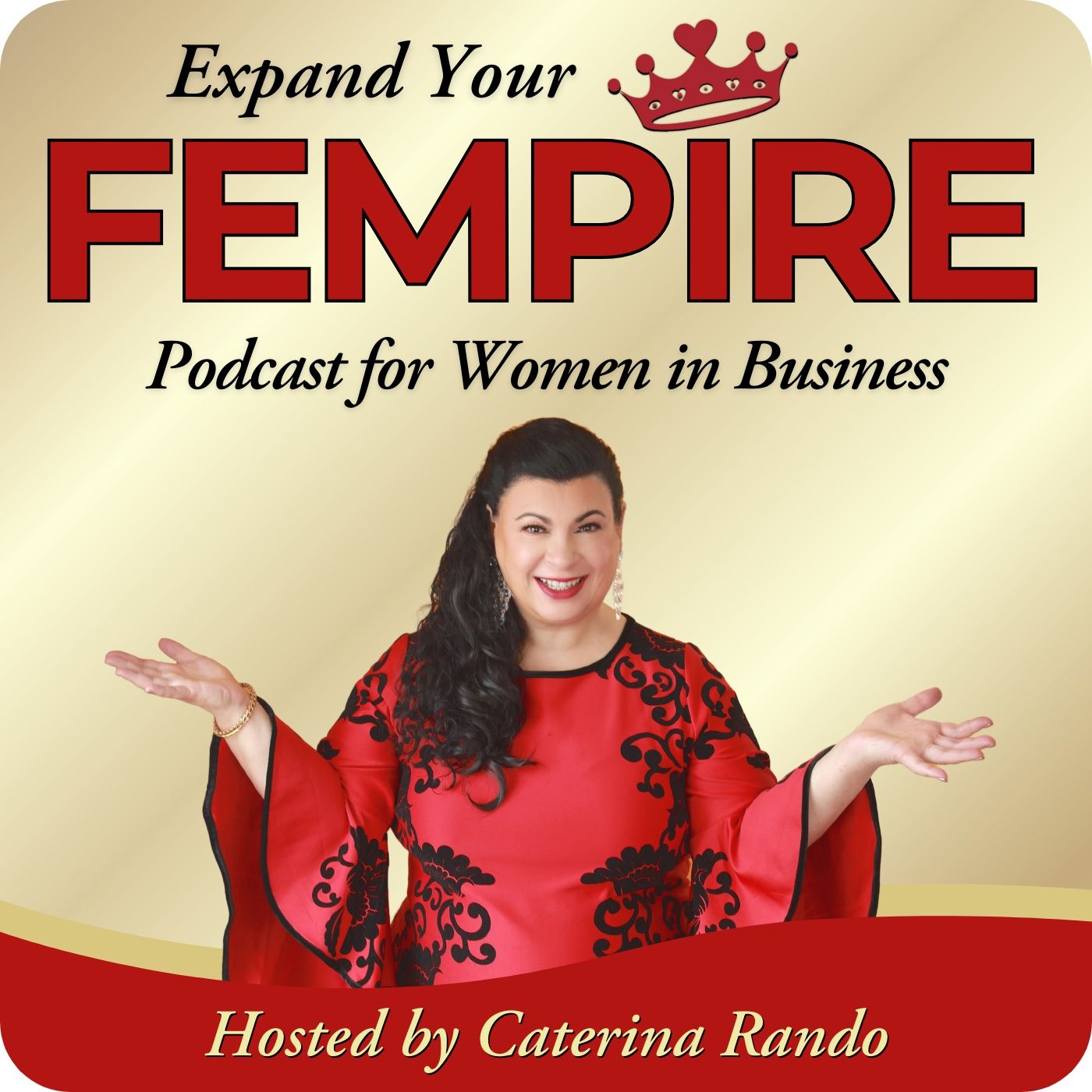
Expand Your Fempire with Caterina Rando
Caterina Rando
Painting Your Path
Clarissa Castillo-Ramsey
Just Wanted to Ask
Anne Zuckerman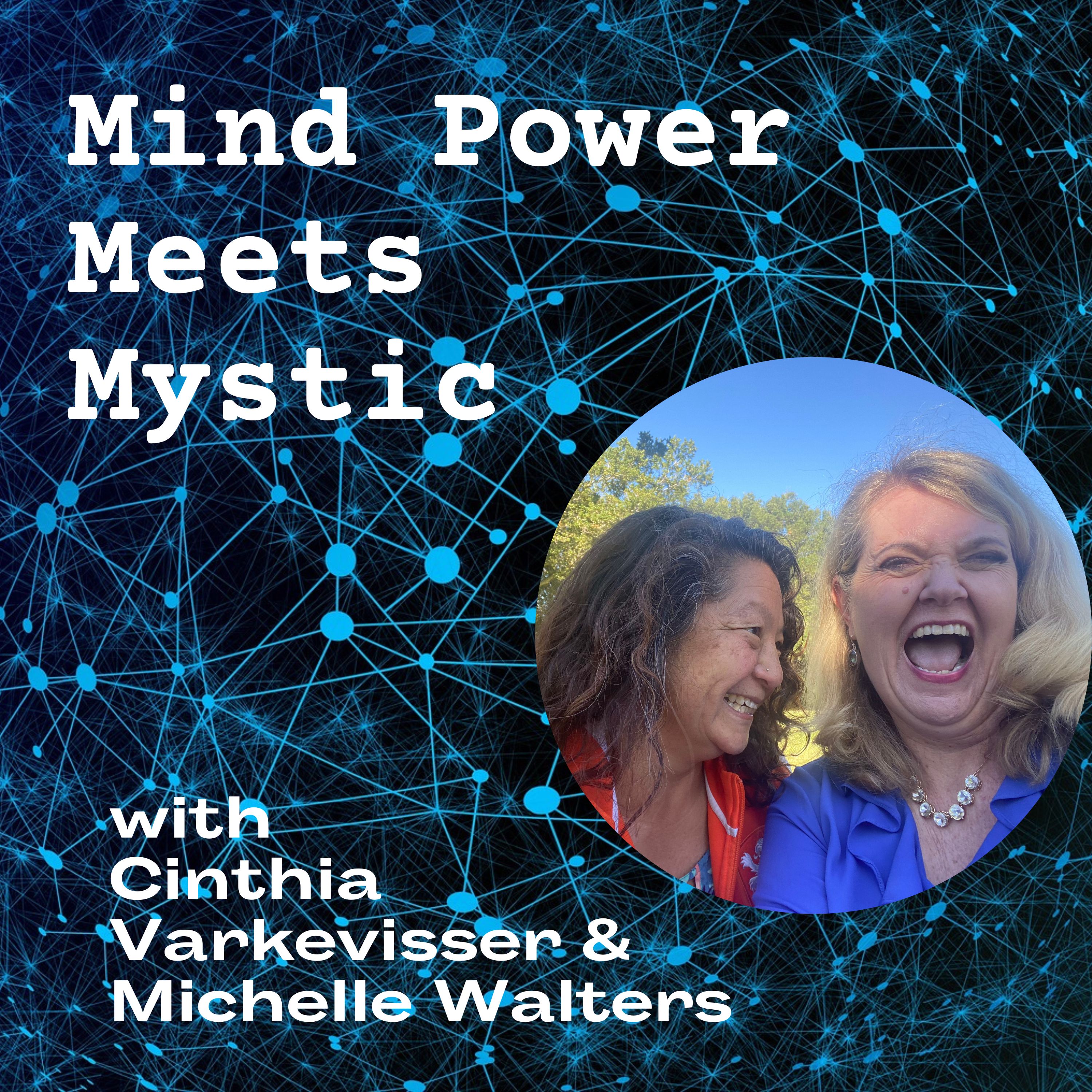
Mind Power Meets Mystic
Cinthia Varkevisser & Michelle Walters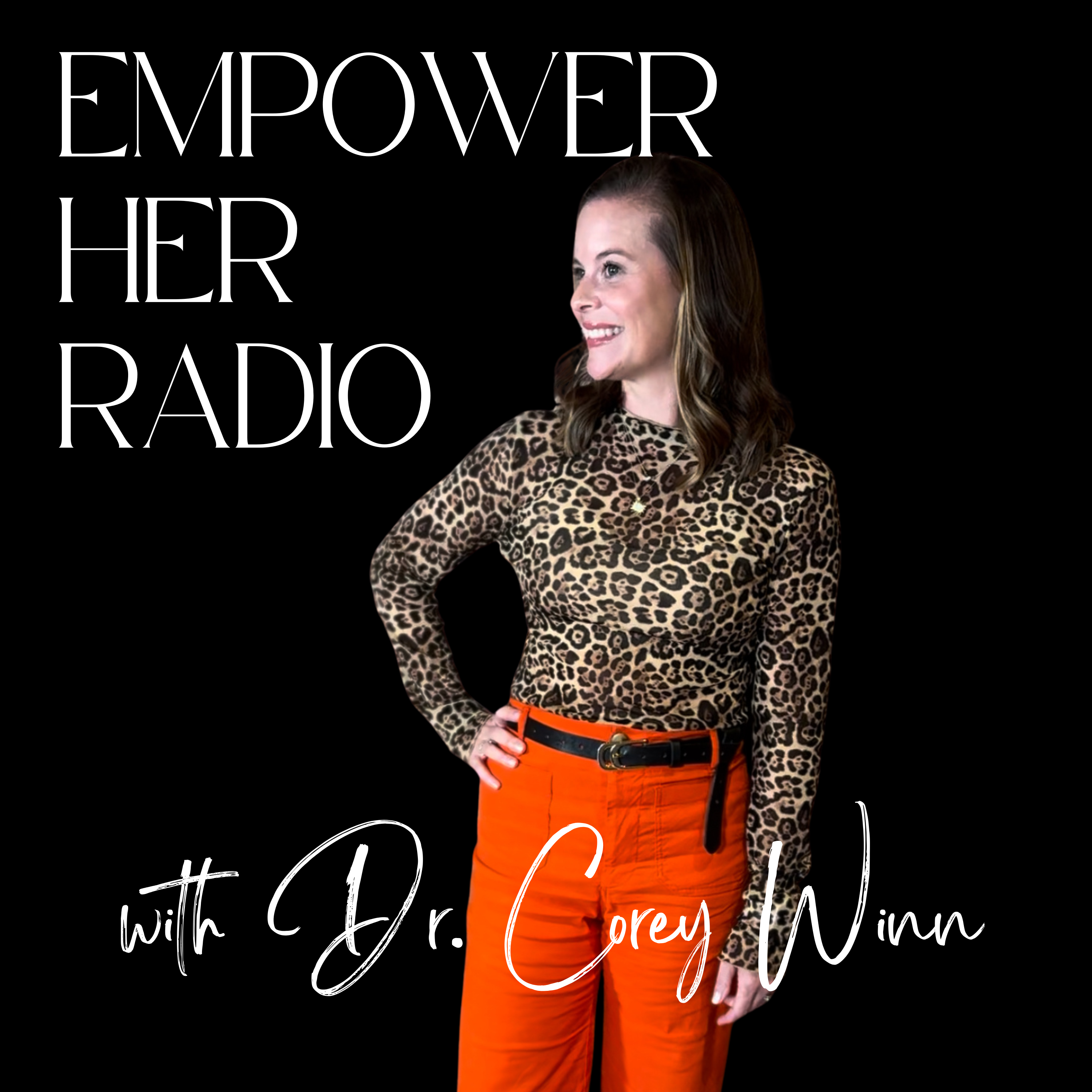
Empower HER Radio with Dr. Corey Winn
Dr. Corey Winn
Casa De Confidence Podcast | Grow Your Business, Life and Confidence
Julie DeLucca-Collins - Business Strategist for Women in Midlife
BECOME EMPOWERED
Sabine Kvenberg
The Pet Parent Hotline | Real Help for Pet Behavior, Budgets, and Everyday Stress
Amy Castro - Pet Parenting & Behavior Expert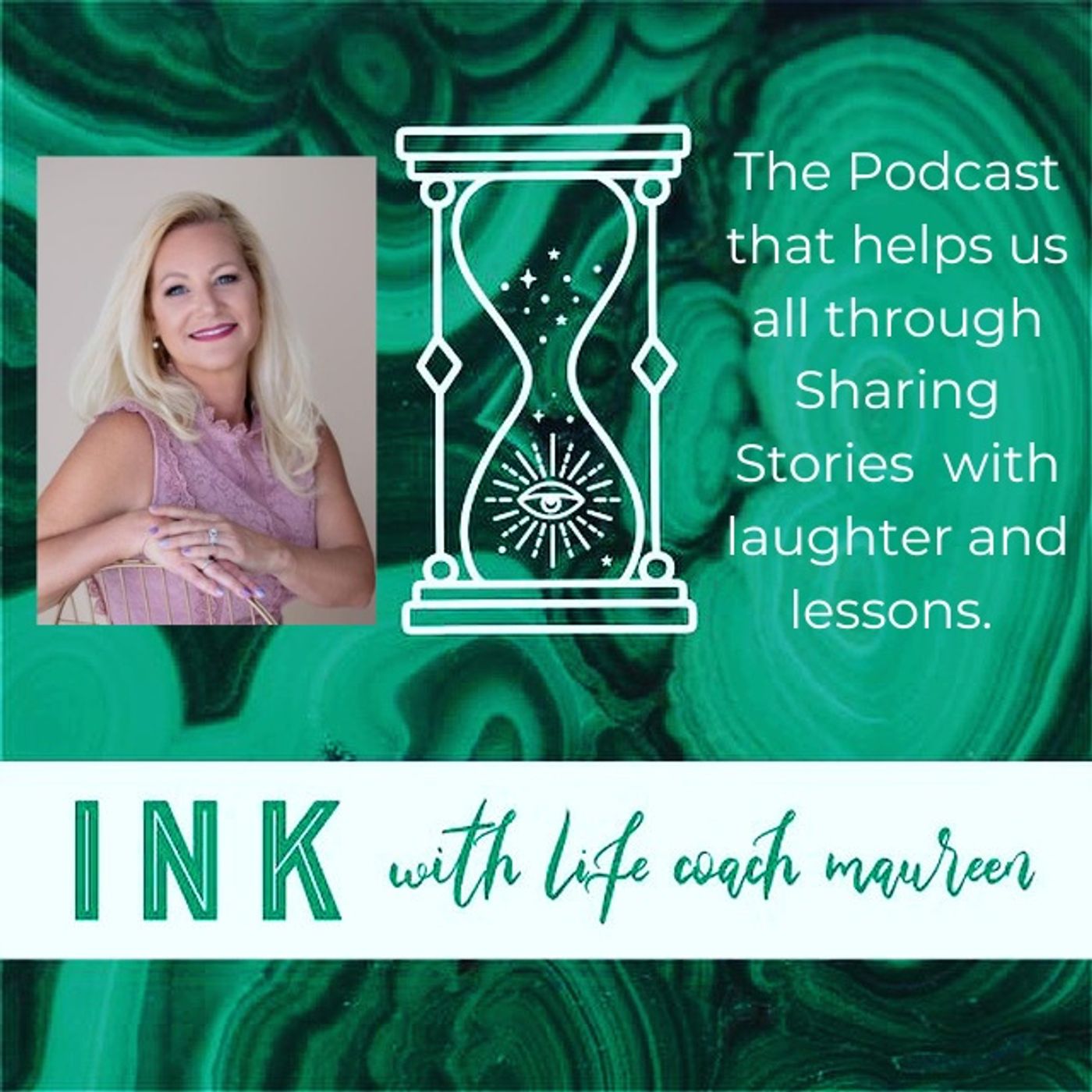
I Never Knew (INK) But My Dog Did! By Lifecoach Maureen
Maureen Scanlon
Podcasting Made Simple
Alex Sanfilippo, PodMatch.com
Grounded in Maine
Amy Bolduc (Fagan)
Ice Cold Case
Madison McGhee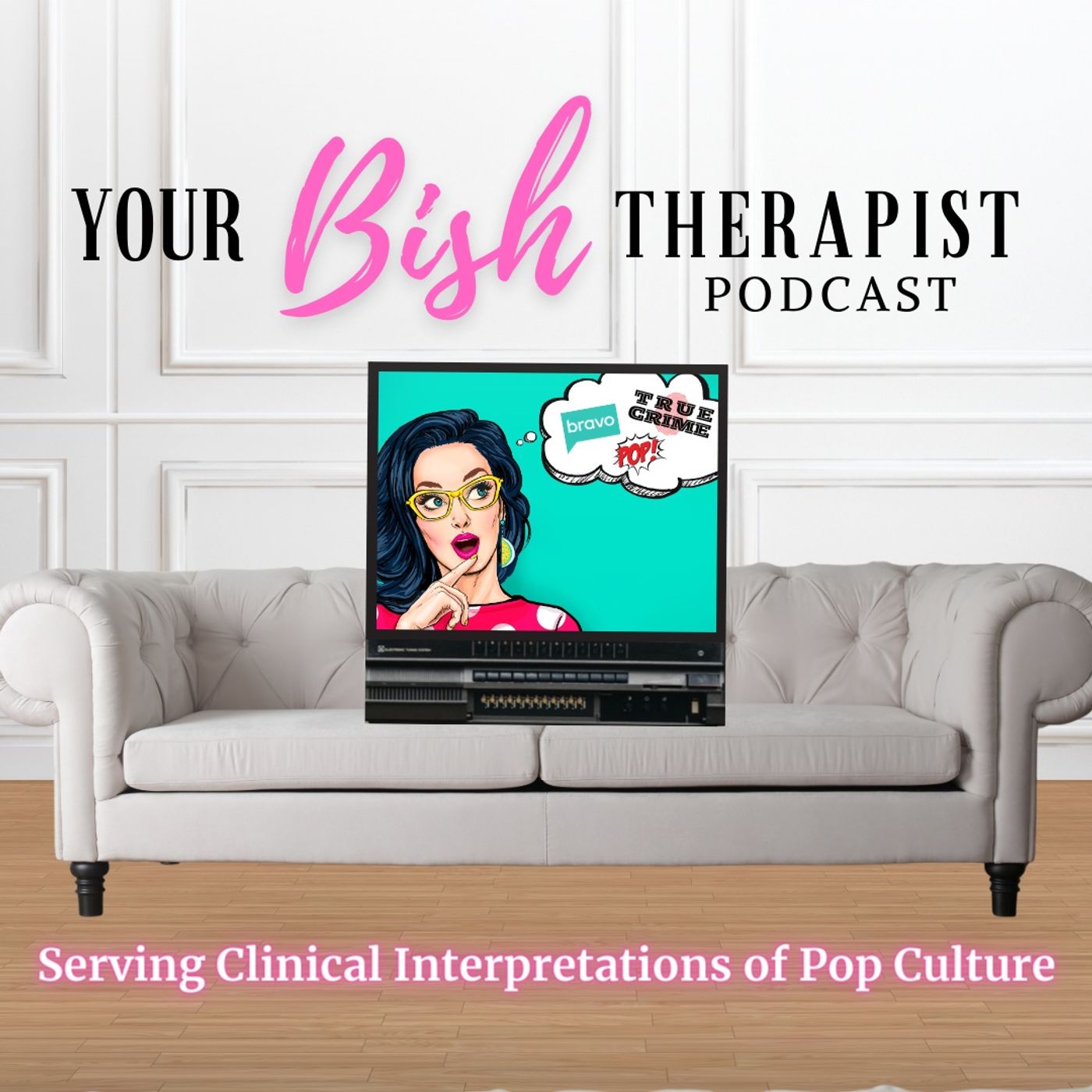
Your Bish Therapist
Melissa Reich
HIListically Speaking with Hilary Russo
Hilary Russo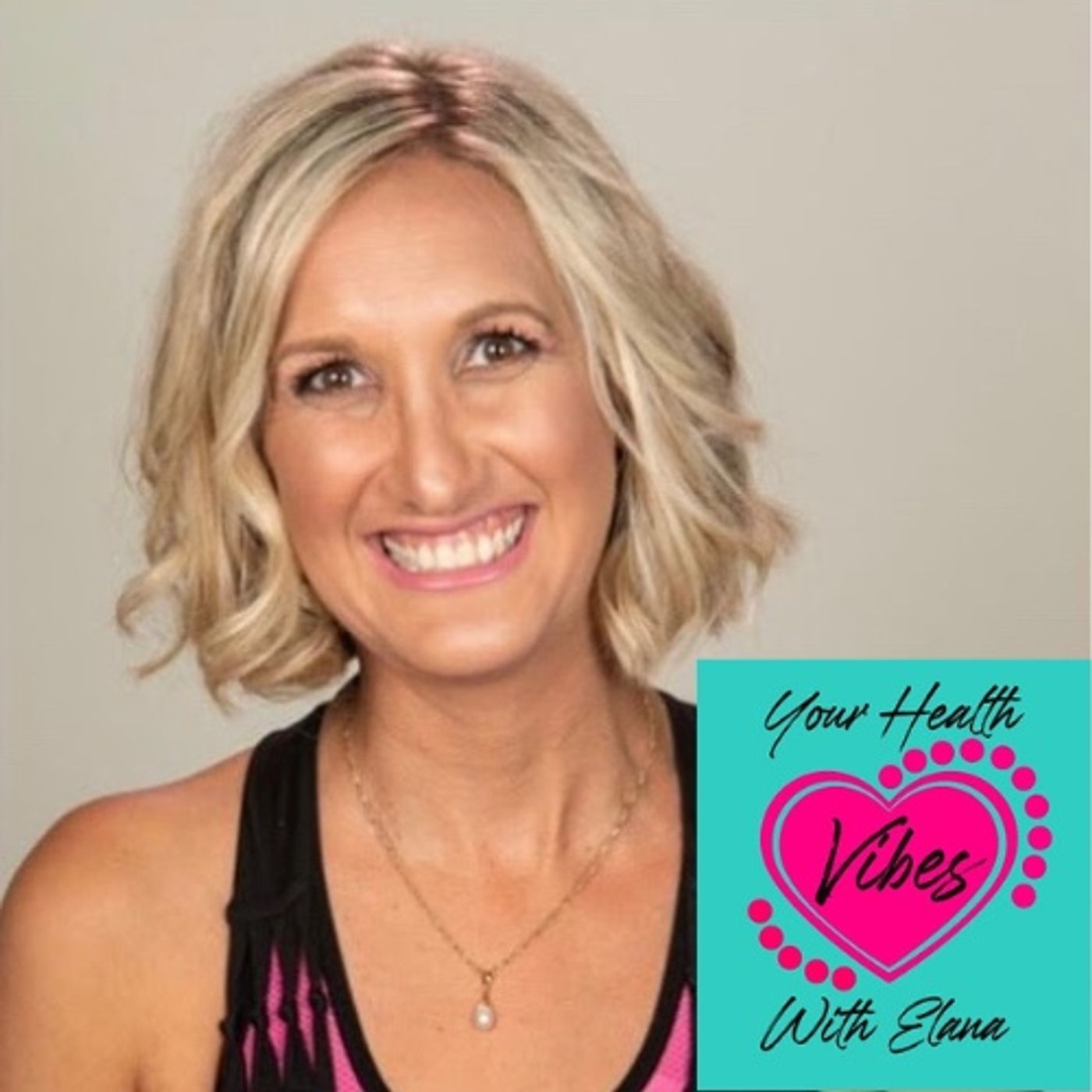
YOUR Health Vibes with Elana
WGSN-DB Going Solo Network
Don't Be Caged By Your Age
Ande Lyons
The Wellness Project with Des
Desiree Argentina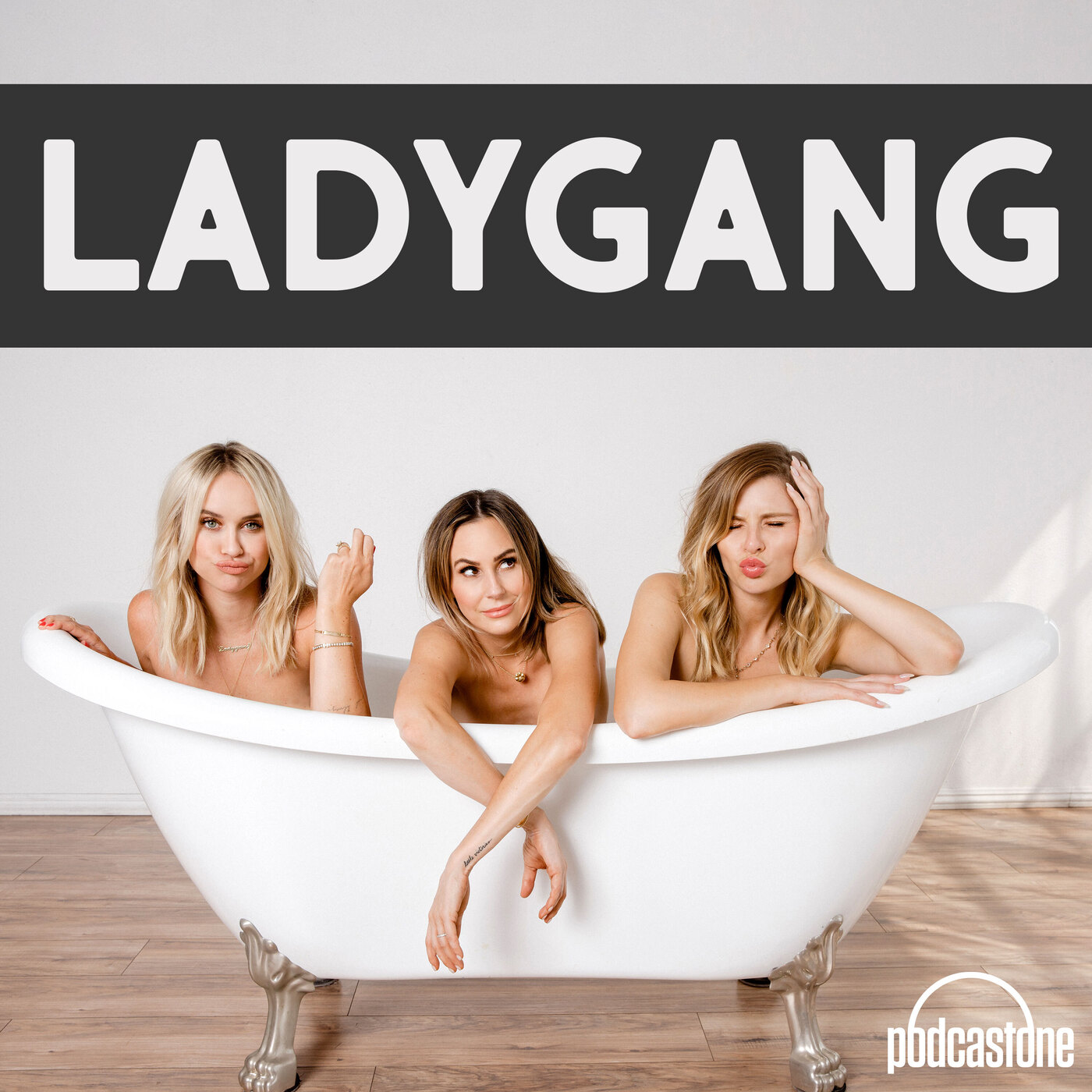
LadyGang
PodcastOne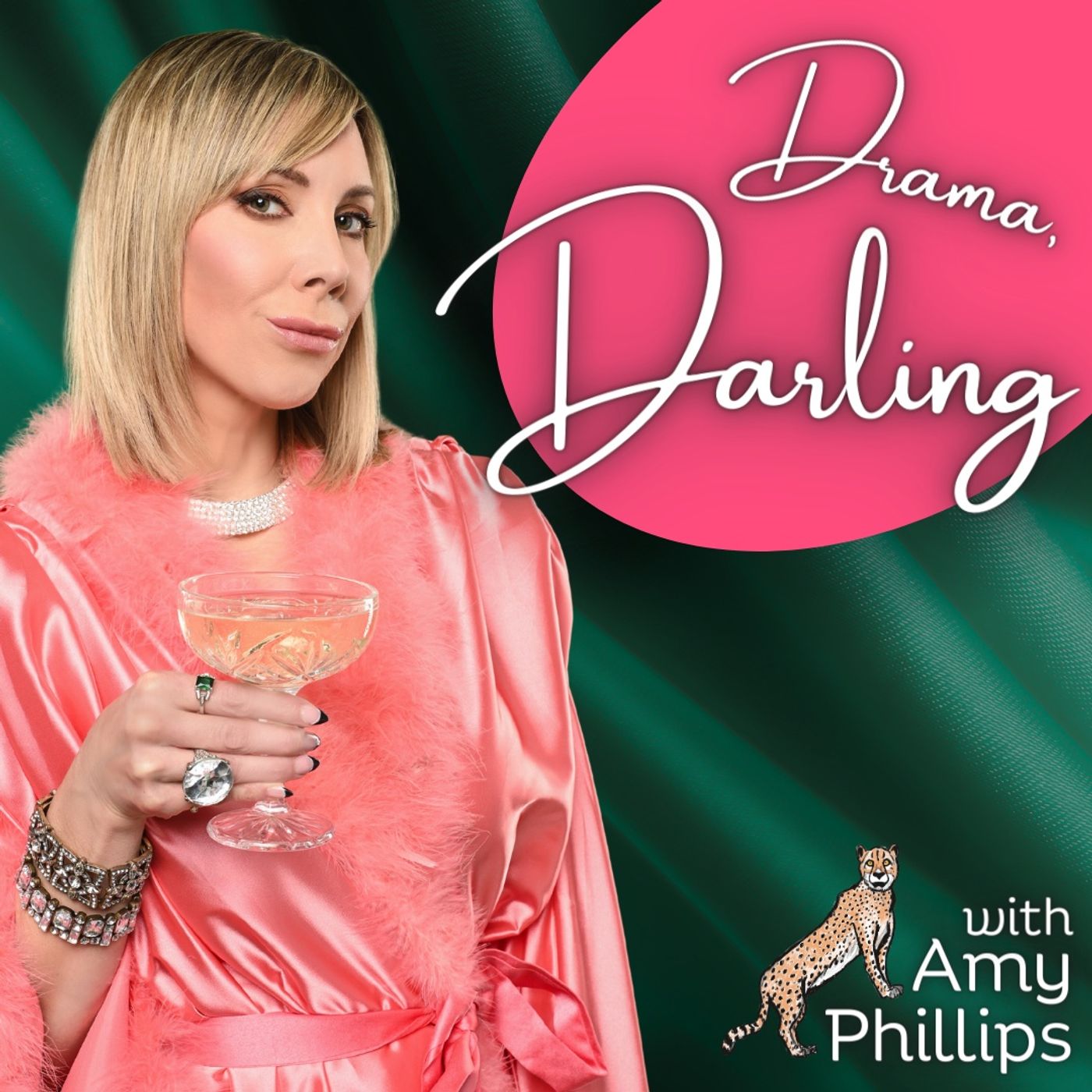
Drama, Darling: A Real Housewives Comedy Podcast
Amy Phillips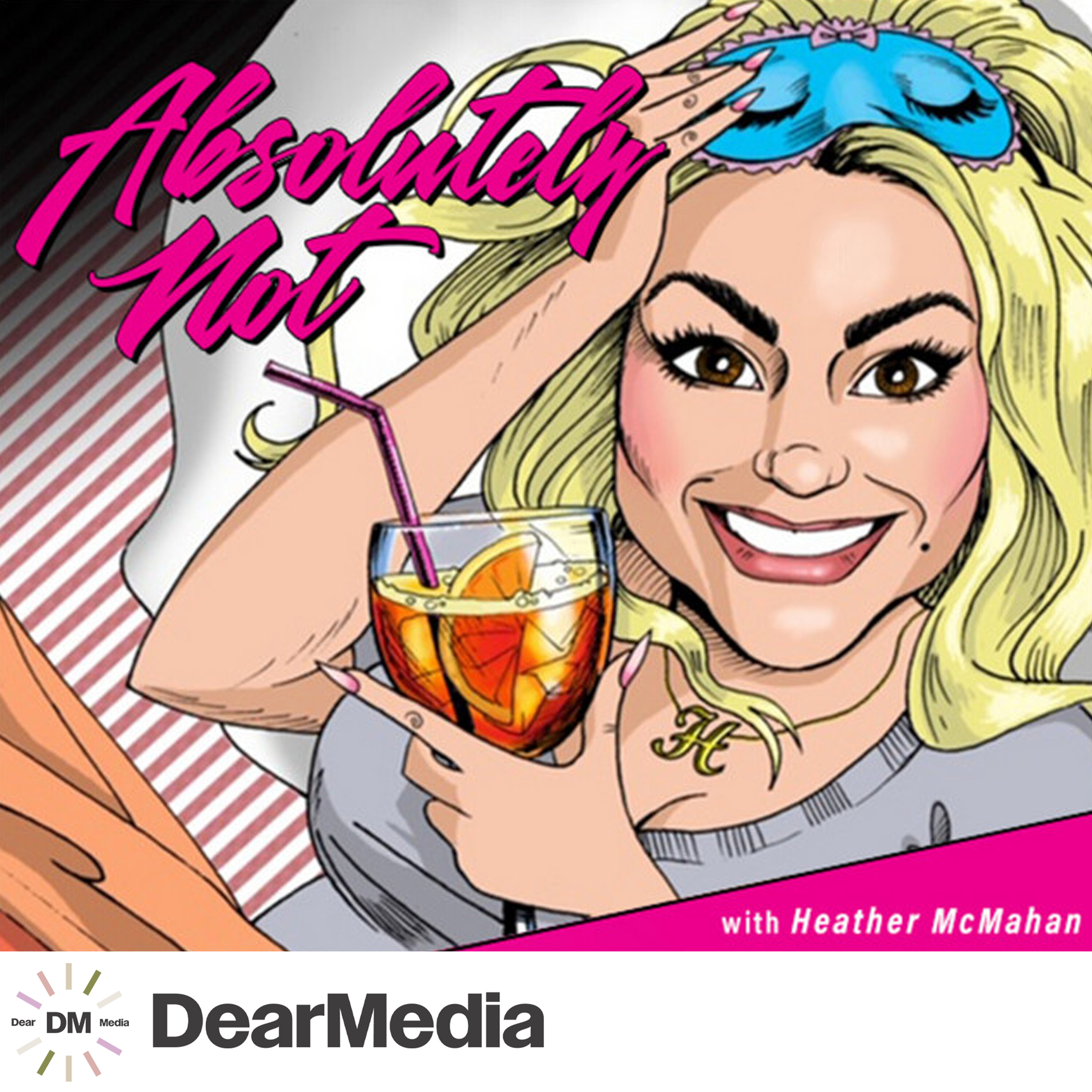
Absolutely Not
Dear Media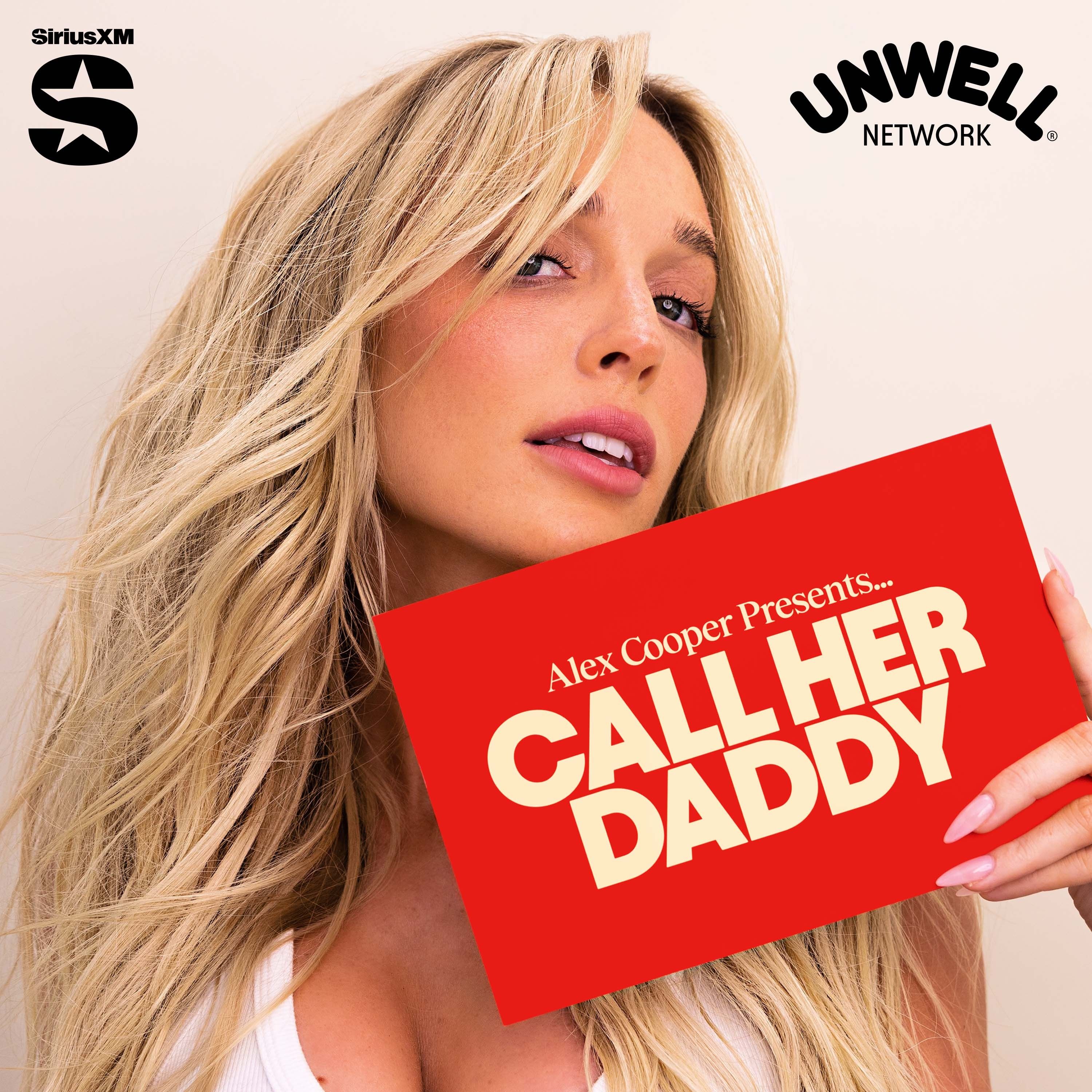
Call Her Daddy
Alex Cooper
Giggly Squad
Hannah Berner & Paige DeSorbo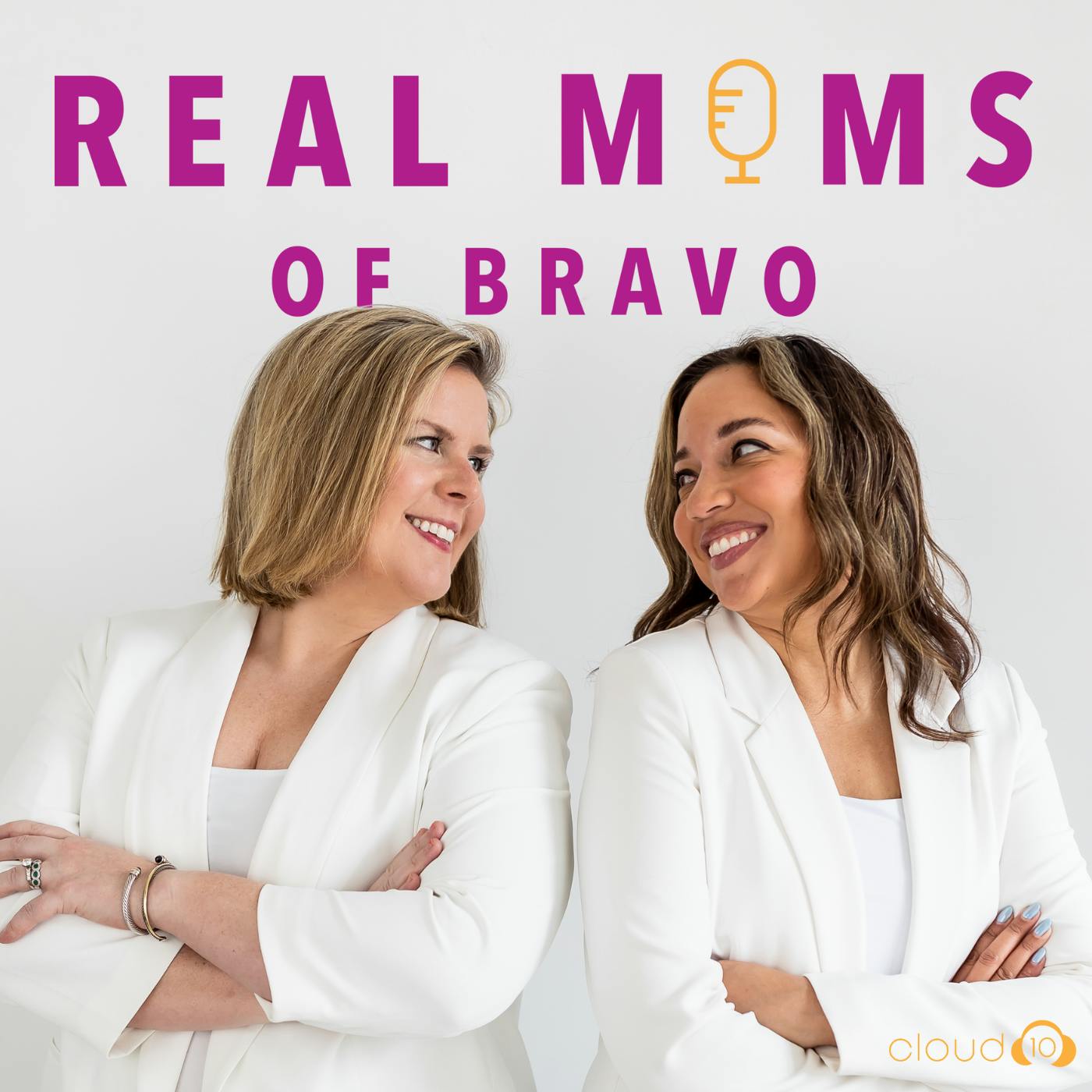
Real Moms of Bravo
Cloud10
Vegan Food Truck Business Podcast
Heather Zeitzwolfe (Savvy Frugal Vegan)
Raise Your Volume Academy with Tiphany Kane, M.Ed.
Tiphany Kane, M.Ed, CEO of KaSa Media Productions
Only One In The Room
Laura Cathcart Robbins
Beyond the Downloads | Podcast & Business Growth
Jenn Dragonette
Feed Your Soul with Kim
Kim McLaughlin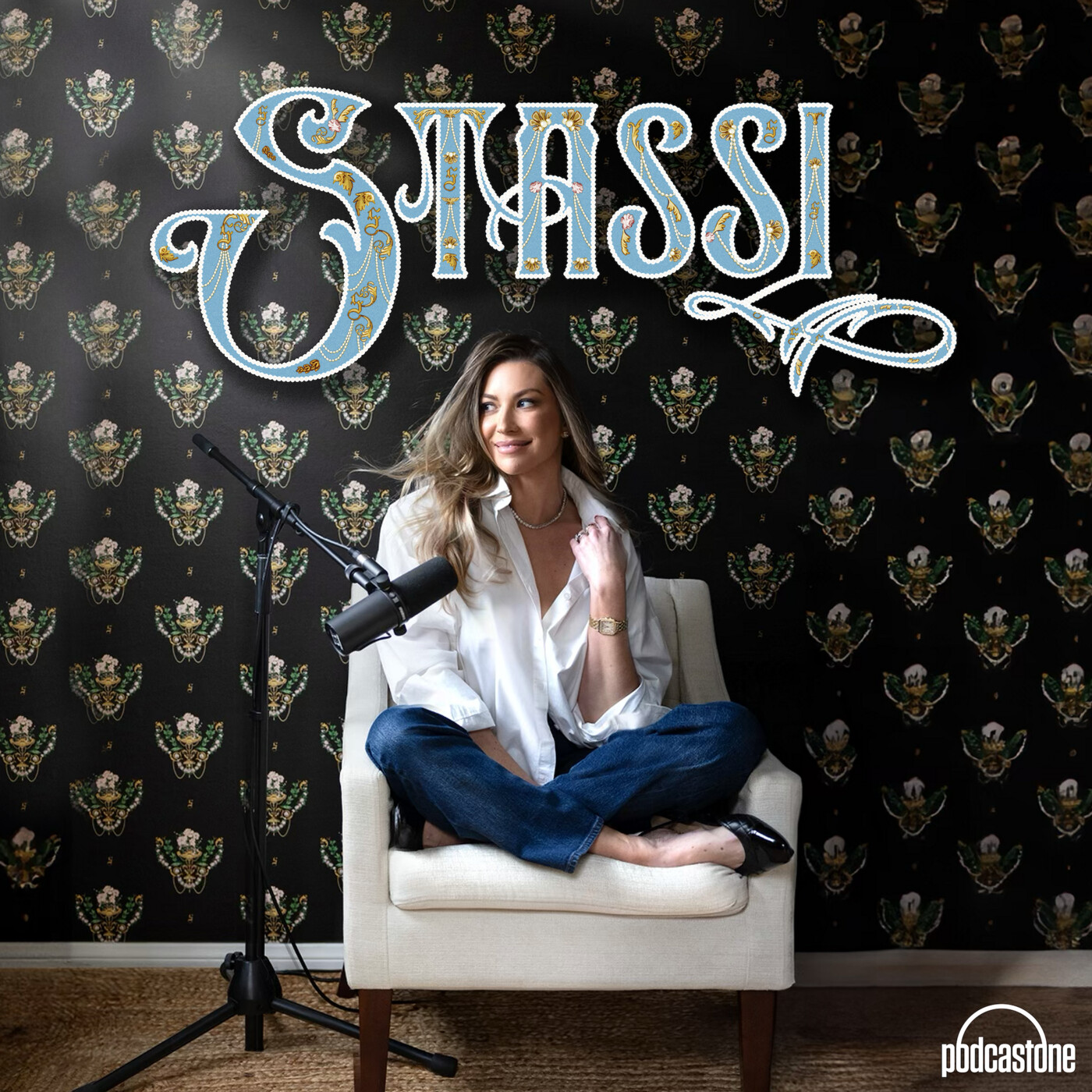
Stassi
PodcastOne



